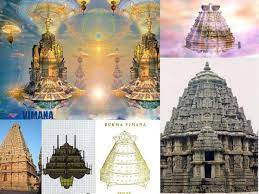The contribution of Hinduism to science, philosophy, and literature
Introduction:
Hinduism is an ancient religion that originated in the Indian subcontinent. It is one of the world's oldest religions and has had a profound impact on the region's culture and society. However, Hinduism's contributions to science, philosophy, and literature are often overlooked. In this blog post, we will explore some of the significant contributions of Hinduism to these fields.
Science:
Hinduism has a rich tradition of scientific inquiry that dates back thousands of years. One of the most significant contributions of Hinduism to science is the development of the decimal system, including the concept of zero. The decimal system has become the foundation of modern mathematics, and the concept of zero is essential in computer science and other fields.
Hinduism also made significant contributions to astronomy. Ancient Hindu astronomers were among the first to develop sophisticated mathematical models to explain celestial phenomena. They accurately calculated the length of the solar year, the length of the lunar month, and the positions of the planets in the sky.
Philosophy:
Hinduism is known for its rich philosophical traditions, including Vedanta, Samkhya, and Yoga. These traditions explore the nature of reality, the purpose of life, and the relationship between the individual and the universe.
One of the central concepts in Hindu philosophy is karma, which suggests that a person's actions have consequences that shape their future. Another essential concept is dharma, which refers to a person's duty or moral responsibility.
The Bhagavad Gita is perhaps the most famous Hindu text, and it contains many of these philosophical concepts. It explores the nature of the self, the relationship between the self and the universe, and the importance of living a moral and ethical life.
Literature:
Hinduism has a rich literary tradition that includes epic poems, plays, and philosophical treatises. The most famous of these works is the Mahabharata, an epic poem that tells the story of a great war between two families.
Another famous work is the Ramayana, an epic poem that tells the story of Rama, a prince who is exiled from his kingdom and must fight to regain his throne. The Ramayana explores themes of love, loyalty, and sacrifice and has had a profound impact on Indian culture and society.
Hinduism, the world's oldest living religion, has made significant contributions to science, philosophy, and literature over the course of its more than 5,000-year history. From the concept of zero and advanced knowledge of astronomy and medicine in ancient times to the contributions of modern-day scientists, Hinduism has played a significant role in shaping our understanding of the world.
One of the most significant contributions of Hinduism to science is the concept of zero. The concept of zero, which is essential in modern mathematics, was first introduced in India. The ancient Indian texts also contain references to astronomy and the use of the sun and stars to track time. Ayurveda, the ancient Indian system of medicine, was a highly sophisticated system that recognized the interconnectedness of the mind, body, and spirit. It was also the first system to use surgical procedures to treat diseases. Today, India is a leader in space research, with the Indian Space Research Organisation (ISRO) successfully launching several satellites and missions to explore the solar system.
Hinduism's rich philosophical tradition has had a profound impact on the world. The Vedas and Upanishads contain some of the most profound philosophical insights on the nature of reality, the self, and the ultimate goal of human life. The Bhagavad Gita, one of the most revered texts in Hinduism, is a masterpiece of spiritual philosophy that has inspired countless people throughout history. Hinduism also gave rise to several philosophical schools of thought, including Yoga, Samkhya, Nyaya, Vaisheshika, and Mimamsa. These schools of thought explored various aspects of reality and the self, and their contributions have been highly influential in shaping the intellectual history of the world.
Hinduism's contribution to literature is equally significant. The Mahabharata and the Ramayana, two of the most famous Hindu epics, are masterpieces of storytelling that continue to captivate readers to this day. These epic poems are not just works of fiction but also contain profound philosophical insights on the nature of reality and the self. Hinduism also has a rich tradition of drama, with plays such as Kalidasa's Shakuntala and Bhasa's Urubhanga being highly acclaimed works of literature. These plays explore complex themes such as love, betrayal, and the nature of existence.
Hinduism's influence extends beyond the Indian subcontinent. The ideas of karma and reincarnation, which are central to Hinduism, have influenced Western philosophers such as Arthur Schopenhauer and Friedrich Nietzsche. The concept of the interconnectedness of all beings, which is a central theme in Hinduism, has also influenced environmental philosophers who advocate for the preservation of the natural world.
Hinduism has also influenced other religions. For example, Buddhism, which emerged from Hinduism, shares many of the same philosophical concepts, including karma and reincarnation. Hinduism's ideas and practices have also influenced other Indian religions such as Jainism and Sikhism.
In conclusion, Hinduism's contributions to science, philosophy, and literature are a testament to its enduring legacy. From ancient texts to modern-day scientific discoveries, Hinduism has shaped the way we understand the world and ourselves. Its philosophical ideas have influenced thinkers across the globe, and its literary tradition continues to inspire new generations of writers. As we continue to explore the rich cultural heritage of Hinduism, we can gain a deeper appreciation for the diversity and complexity of the human experience. Hinduism's impact on the world is undeniable, and its contributions will continue to be felt for generations to come.






No comments